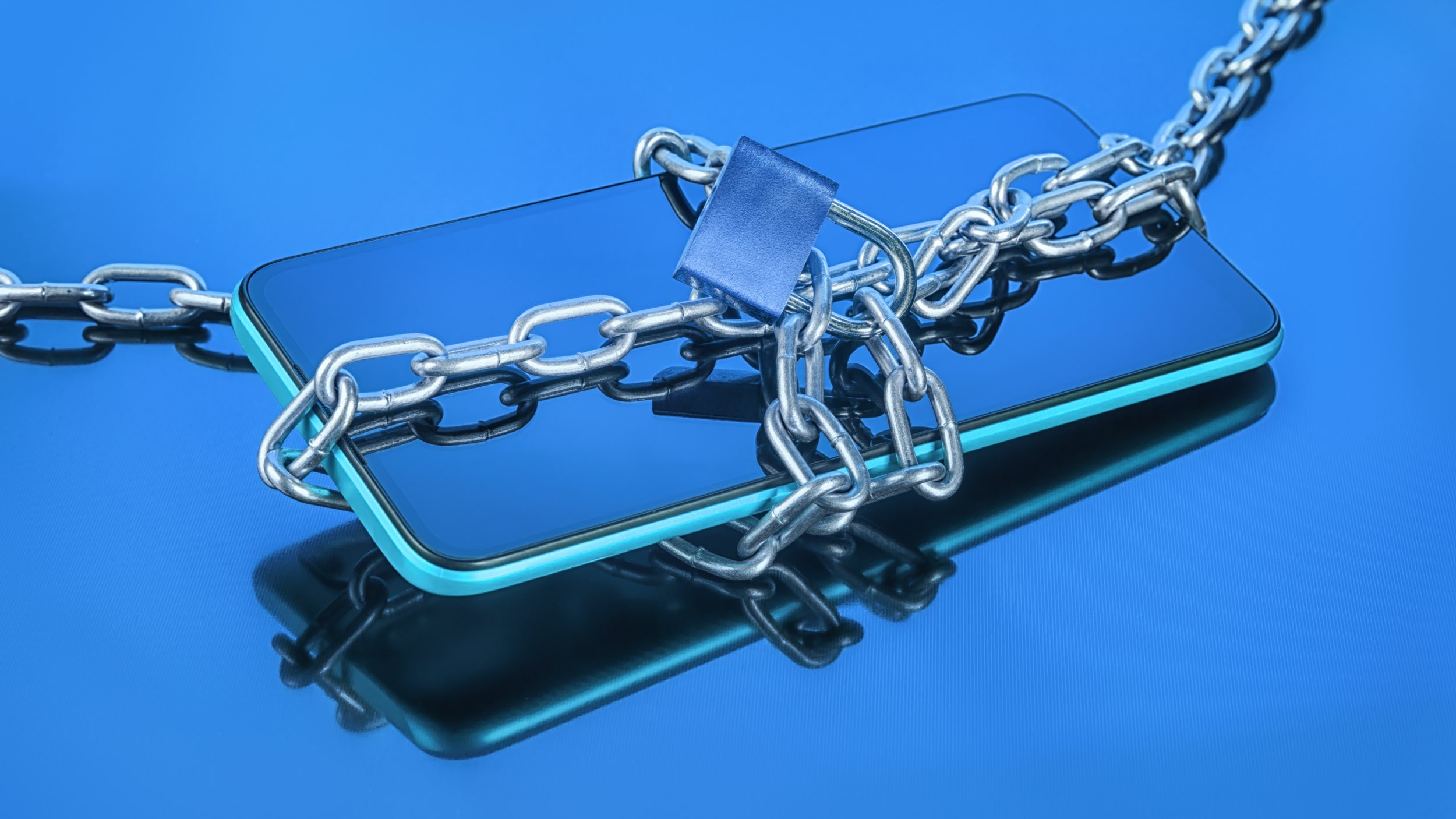- cross-posted to:
- news@lemmy.world
- cross-posted to:
- news@lemmy.world
Missing in this thread, courts are not known for their technological literacy. So companies just lie to them. Like, all the time. This isn’t meant to withstand consumer scrutiny.
isnt lying to court felony?
Yeah but you have to get caught lying. And the courts aren’t very literate with tech and economic stuff. You’d basically need to create a memo that says, “lol we lied!”
someone should try to inform relevant courts about technical things, no idea how but those corporations shouldnt be allowed to get away with crime
You’d be interested in groups like the EFF and Amicus briefs.
For poor people, maybe
This.
Are you suggesting that there are some lies involved in this? If so, you shouid be specific about which lies you’re referring to. Without the specifics this just seems like FUD.
Locked phones are what led me into the rabbit hole of purchasing phones from manufacturer, since the carriers not only lock phones but hobble the OS.
It did mean understanding what was necessary for a phone to qualify for given carriers, but I can tech when I need to, and I tech for my friends when they need it.
In 2024, T Mobile and AT&T (and Verizon) have all demonstrated they do not engage in good faith commerce, and so right now they’re being sniveling little shits (quote me please) because the FCC and DoC are escaping regulatory capture.
That is to say, the end users are tired of their shit. Apple and Google, too.
Question: I bought my phone unlocked several years ago. I have AT&T. But apparently, because I didn’t buy it from AT&T, my visual voicemail refuses to work
I’ve tried and given up several times to fix it, and it’s not a huge deal; I just miss being able to check my voicemail without calling it.
Do you happen to know anything about this? Every “fix” I’ve found has failed so far
“Rabbit hole”? Isn’t it as easy as just not going to a carrier’s store for it?
We always bought from generic tech stores, almost always big chain ones - never got a carrier-locked device. Is it different in the US?
If you get phones from the manufacturer they’re not labeled compatible with AT&T so much as that they have access to specific radio ranges and are controlled either by soft-stored codes or by a SIM card, and I’d buy the sim card from the service, and then stick it in my phone. The Sony I had for a while was compatible with both the T-Mobile and AT&T ranges, and I used a third party service that was an el-cheapo front for T-Mobile.
T-Mobile wanted me to pay extra for hot-spot use, but I got around that with software, which is like hacking the subscription seat warmers on your BMW.
Curiously, Apple phones will lock themselves (or did for a while… is it better now?) based on what service you initially connected them to, and you have to (had to, I hope) get their permission and pay fees to unlock it again.
The telecommunication companies are an oligopoly, so like a legal cartel, so they pull a lot of bullshit that we end users have to suffer. But it means I feel not a jot of guilt when I hack the hell out of it to extract services I didn’t pay for, since it’s all a grift anyway.
A lot of the big tech stores here in the US have separate counters for each of the major mobile carriers, and sell devices that are locked into those contracts. You can sometimes get unlocked phones from big tech stores, but most of what they carry is locked to a carrier.
My T-Mobile phone that’s been unlocked and moved over to Google Fi has the T-Mobile image whenever you start up the phone. I’ll only buy phones directly from the manufacturer now.
You’d have to flash new firmware for that to change. In the old days each phone was carrier specific and had to have the exact right firmware but now they’re fairly generic and are cross compatible (do your own research). You could check XDA Developers for the process.
What exactly is “good faith commerce”?
That doesn’t seem to register as a coherent concept, considering good faith has to do with considering the whole of the interaction instead of one’s own side, and business is when each person handles only their own side of the equation.
Seems like an empty phrase to me, unless you can enlighten me.
They would. Pricks.
They aggressively buy spin off services to ensure a locked market as well.
Cricket wireless was a on AT&T network provider that outshined AT&T because it allowed any device + better prices.
So naturally they bought them out and shutdown the any allowed devices to force you into buying a carrier phone to ensure your device will be locked.
“T-Mobile claims that with a 60-day unlocking rule, “consumers risk losing access to the benefits of free or heavily subsidized handsets because the proposal would force providers to reduce the line-up of their most compelling handset offers.”
I’m I stupid or are they threatening to arbitrarily raise prices for no reason other than spite?
Also wtf is a “handset”?
-
“Handset” is obfuscating legalese to refer to a cell phone in a way intending to distance the meaning of the word from the thing that the old and technologically illiterate people who rule on this use every day.
-
I’m no fan of their strategy, but cell phone providers have claimed for a long time that filling your phone with unremovable bloatware causes the overall price to decrease. They’re argument is most likely that they will have to charge more once the propagators of that bloatware realize that they can no longer force it on people and wedge that as a reason to pay less to carriers.
-
The reality is that cell phones are priced based on what people will buy anyway and carriers pocket is much of the money as they can that third parties pay them for their bloatware. Ultimately because of that this ruling hurts their bottom line, but the above reasoning gives plausible deniability in the face of the law as it is interpreted by old technologically illiterate lawmakers
-
For my past 3 phones I just bought straight from the manufacturer.
I recommend it and hope phone unlocking gets pushed through despite their whining
I haven’t financed a phone since 2008. I copped a fee for ending a 24 month contract a day early.
I just buy a cheap outright handset, flash a community ROM and avoid everything my telco offers past a $20 basic service. Handsets with community support go for years past what the manufacturers support.
I’ve done this almost from the very beginning (back in the 90s) and always had very small mobile communications costs because I could easilly change providers and plans and even do things like use a local SIM card whilst abroad to avoid roaming costs.
Meanwhile Verizon has already been unlocking after 6 months
But if we unlock your phones from the start we lose control over you :( pwease
That’s such bullshit. Locked phones are like google accounts. At the end of the 2 years of owning it supposedly, you end up with all this shit you accumulated and no way to save it anywhere practically.
“Taking away peoples freedom is whats best for users! It’s the American way!”
The FCC is the one taking away people’s freedom here, by preventing users from entering the kind of contract that T-Mobile and AT&T are offering.
Consenting adults are happy to sign up on those terms, and the FCC is proposing to prevent that arrangement.
The carriers make an excellent point that without that lock-in, the sale of the phone is less valuable to them. This means they won’t be able to offer the heavy subsidies on phones any longer.
This is the government preventing contracts between consenting adults. The government is reducing freedom here.
It’s weird to see T-mobile taking this stance. I switched to them years ago because they were one of the few that supported unlocked phones, and even offered them for sale. Their policies might have changed on this, but I just bought an unlocked phone off Ebay this Summer and all I needed to do was pop my sim card into the new device. Hell I had to specifically install the visual voicemail app because there wasn’t any bloatware on the phone when I got it. So I guess I’m not following what their complaint is about?
I remember their “Uncarrier” slogan and how they were doing things very differently from the big providers and even led to them doing away with contracts and such.
Newsflash: T-Mobile is a big provider. They took some standard European practices, also technology, and then pretended to be a small scrappy startup in the US until they had enough of a customer base to return to their usual monopolistic ways.
The only thing that keeps them half-way in check over here is forced unbundling: If you have network infrastructure you need to let other providers use it, at regulated prices. Which is really necessary as they inherited every single landline in the country from the old state monopoly.
Be glad that the postal service got broken up into telecoms, postal/parcel and banking before getting privatised if it hadn’t it would be an absolute scourge on the world. Imagine them cross-financing such market takeovers with the additional resources from the largest logistics company in the world (DHL). Banking sector is less impressive right now Deutsche Bank doesn’t know what to do with it. I have no idea why they even bother, they don’t care about end-consumer banking there’s no money in that.
Wasn’t that before they bought out Sprint, though?
The US peasant is not tech savy enough to do what you do, they end up in some lop sided contract with a corpo parasite that attempts to make their lives uncomfortable.
Every carrier lets you use an unlocked phone on their network
T-Mobile no longer lets you buy unlocked phones from them
What year is it? Locked devices have been illegal in Quebec for, like, ever.
Fuck the lot of them. Shop around for the best deal that doesn’t try to screw you over.
the term is MVNO, thats where you want to shop, folks. bring your own device too.
deny the parasite them profits.
For real. And they’re cheaper too.
I pay around $300 annually for unlimited data?
Near monopolies say monopolistic behavior is good for you and does not only benefit them. More bullshit at 11.
You know what the difference between a near monopoly and an actual monopoly is?
In one scenario there’s competition and in the other one there’s not. Basically one’s a monopoly and the other isn’t.
If near monopolies agree to rules sets with one another, they can effectively monopolize. That’s why there are regulations in place to prevent that behavior but we’re consistently seeing the lack of enforcement of those rules. Sure there are still other telecoms other than these two, but in the US each of the major telecoms are guilty of this sort of behavior, and while phone unlock is allowed they create unnecessary barriers to make it more difficult for consumers to do this, at the benefit of themselves. It’s similar malicious compliance to providing an ability to cancel a subscription but making it difficult to do so for consumers so they give up trying.
They shouldn’t be locked at all. If the phone is included with the contract, it probably requires you to pay it off if you cancel early anyways.












